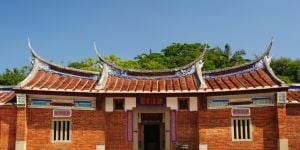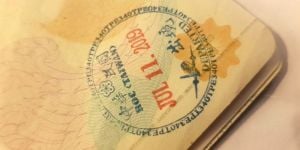
Taiwan has single-payer healthcare for citizens and legal residents. The healthcare program was launched in 1995 and is considered affordable and high quality. This does not mean that healthcare is free, but it is inexpensive, even for expats in Taiwan.
Legal residents in Taiwan will be given a National Health Insurance card that should be presented at hospitals, clinics, dentists, and pharmacies. If you do not have a National Health Insurance card, the hospital or clinic cannot process your visit under the insurance.
First visits to a hospital or clinic usually mean a long wait time, as appointments are not available for first visits. The best time to go is during the week in the early morning. Follow-up consultations are scheduled but will still require some wait times. Hospitals and most clinics are also open on Saturdays in case you cannot go during the week. Be aware that they all close for two hours during lunch.
What is covered by health insurance in Taiwan?
Health insurance covers all doctor visits whether in a hospital or clinic in Taiwan. There are, however, some clinics that do not accept National Health Insurance. It is best to ask before visiting a clinic.
Traditional Chinese medicine (TCM) is also covered under the insurance plan. If you want to try TCM, you can visit one of the numerous clinics and ask about the cost and treatments.
Eyeglasses are not covered by insurance, but glasses shops offer free exams. Some people will say you shouldn't get the free eye exam as many mistakes occur, usually including giving customers the wrong prescription. Eye exams at hospitals are inexpensive but do not offer eyeglasses. It is best to get the prescription from the hospital and then purchase glasses elsewhere.
Some medications that require a prescription in other countries do not require one in Taiwan. However, the health insurance is likely to cover the cost of the prescription.
What is the cost of health insurance in Taiwan?
Insurance coverage begins as soon as you begin to work in Taiwan. The premium rate for National Health Insurance is currently 4.69% of your salary multiplied by your contribution ratio, which should be about 30%. That total is multiplied by the number of people covered under your plan (i.e., dependents). The premium payments are generally handled by your employer and deducted directly from your pay.
For most doctor or dentist visits in Taiwan, patients have a co-pay of NT$150. In some cases, medication is included in the cost. Certain specialist procedures will cost more, and most follow-up appointments do not require a co-pay.
According to the NHI website, 'If you are not an employee but own your company, you will have to wait for 6 months before you are entitled to join the NHI.'
For more information on the National Health Insurance in Taiwan, visit the NHI website.
How good is Taiwan's healthcare system?
Taiwan's healthcare system routinely ranks among the top healthcare systems in the world, according to various metrics and global surveys, often appearing amongst the top three nations. These surveys take into account such factors as the overall quality of the healthcare system, the competence of healthcare professionals, the availability and quality of medical equipment, the overall cost of care, and more.
The Taiwanese healthcare system and National Health Insurance garner high approval ratings domestically as well, enjoying an approval rating of 91.6 percent in 2021, according to statistics released by the National Health Insurance Administration (NHIA). Concerns have been raised that without premium hikes for National Health Insurance, the system will eventually go bankrupt. Such increases have been rare since the adoption of the NHI system, as they are a politically unpopular move. However, as of the present time, the system remains solvent.
Doctor burnout, as well as complaints of heavy workload and fatigue among nursing staff, is a widely reported problem in Taiwan. In addition, pay for doctors in hospitals and clinics is very low, NT$200 per patient, and so most doctors must see a high number of patients per day in order to earn a decent living. As such, patients may find that appointments with doctors at neighborhood clinics or even with specialists at hospitals go very quickly.
Medical training in Taiwan focuses highly on the concept of personal sacrifice on behalf of the physician. As a result, many work very long hours and bear the true cost of keeping the National Health Insurance System alive.
What to expect from a hospital stay in Taiwan
Taiwan's hospitals are large, modern, efficiently run, and well-staffed by competent and compassionate healthcare professionals, from surgeons to various specialists and nursing staff.
One major difference regarding a hospital stay in Taiwan, however, may be the lack of orderlies. Except for those in intensive care units, patients' families are often responsible for the personal care of patients, including dressing, feeding, and even helping them to bathe.
Patients who require personal care, after surgery, for instance, are obligated to hire a caretaker at their own expense, as such costs are not covered by National Health Insurance, though they may be covered by some forms of private insurance.
It is worth noting that caregivers do not require any form of licensing in Taiwan. Nevertheless, finding and hiring a caregiver is rarely difficult, as many will discretely hand out their business cards to new arrivals in the wing they happen to be working in at the time, just in case their services may be required.
What to do in cases of medical emergency in Taiwan?
In case of a medical emergency in Taiwan, call 119 for an ambulance. There is no charge for the ambulance in genuine cases of emergency. However, for those who call an ambulance for non-emergency situations, there is a charge of NT$1,800.
Childbirth in Taiwan
Childbirth in Taiwan mostly takes place in hospitals, though some opt for home births, such as water births, or to do so with a doula. Hiring a doula, including pre-natal meetings, support during labor, and consultation after the birth, costs around NT$35,000.
Scheduled inductions and C-sections are quite common in Taiwanese hospitals. For foreign nationals with NHI, the co-payment for giving birth in the hospital is NT$3,000 to NT$5,000. Without NHI, the cost would be around US$1,500.
One unique thing about childbirth in Taiwan is the prevalence of after-care for mothers. Hospitals — not all, but many— have aftercare centers for mothers who have just given birth, wherein a dedicated staff essentially assists the mother with the first month of care for the newborn and with helping the mother recover from the effects of childbirth. There are also post-natal centers that operate privately.
At these centers, assistance is provided with feeding the infant, and mothers are provided with an array of traditional foods believed to have healing effects on the body. Care at these centers is not covered by health insurance, but spending one month in one of these centers is considered the norm for new mothers here. Costs vary from center to center but tend to range from around US$100 to approximately US$400 per night.
Traditional Chinese medicine in Taiwan
Certified Chinese medical physicians must attend one of four schools of Chinese medicine at four universities nationwide. The length of their program of study varies by school, from five to seven years, and admission rates are very low, with each school accepting between 45 and 60 students per year.
Before 2011, those who wished to practice traditional Chinese medicine had only to pass one of two categories of national exams, for which one could prepare through a program of self-study. However, that system was scrapped, and since then, the only route to becoming a certified TCM practitioner is through university education.
There are currently over 40 teaching hospitals in Taiwan with a Chinese medicine physician on staff. Furthermore, there are nearly 4,000 TCM clinics around the country, four Chinese medicine hospitals, and a further 122 hospitals with their own department of Chinese medicine. Currently, National Health Insurance only covers traditional Chinese medicine outpatients and does not cover TCM inpatient care.
At some hospitals in Taiwan, a hybrid Western/Chinese Medicine Combined Care Model has been launched in outpatient departments, emergency rooms, and in wards dealing with ailments such as head and neck tumors, vertigo, chronic pain, bowel obstruction, and more.
According to statistics released by the Ministry of Health and Welfare, about 90 percent of materials employed in traditional Chinese medical practices in Taiwan are imported. As such, there is a mandated quality control system in place, with regulations for correct labeling that includes the product name, weight of the materials, the name of the manufacturer, expiration date, batch number, country of origin, and so on. Limits have also been set for so-called “abnormal substances” in traditional Chinese medicinal products, including heavy metals and pesticide residues that may be present in the harvesting and processing of herbs and plant materials commonly used in traditional Chinese medicine, and the top ten most common traditional Chinese medicines are routinely inspected by health authorities for any abnormalities. These materials include jujube, astragalus root, licorice, and paeony root, among others.
Though traditional Chinese medicine is based on practices and principles that are perhaps centuries or even thousands of years old, it is still a developing field of study in Taiwan. The Ministry of Health and Welfare promotes medical research into the use, certification, and distribution of new Chinese medicinal drugs and has established a review board to assess the safety and efficacy of any new traditional Chinese medicines that may be proposed for use in treating certain ailments in Taiwan. According to the latest edition of the Taiwan Herbal Pharmacopeia, there are nearly 360 items approved for use in traditional Chinese medicine.
Living with disabilities in Taiwan
There are mechanisms, policies, and systems in place in Taiwan to assist people with disabilities by providing funding and services they may require to live life with dignity and quality. Taipei City, for instance, has the Division of Welfare Services for the Disabled, while the People with Disabilities Rights Protection Act protects the legal rights and interests of those with disabilities on a federal level.
Accessibility for those with mobility issues varies widely from place to place. In Taipei City, the Mass Rapid Transit system is equipped with wheelchair ramps at station entrances/exits and with elevators that can transport those with limited mobility to and from elevated or below-ground platforms.
Generally speaking, in all places managed by government agencies, wheelchairs can be borrowed, and wheelchair-accessible restrooms are available on-site. Such quality-of-life assurances for those with disabilities diminish as one moves out into more rural areas of the country. Furthermore, in the private sector, issues pertaining to the rights of the disabled and to accessibility for those suffering from disabilities still, as has been widely reported, have a long way to go.
Navigating streets and walkways throughout Taiwan can be challenging for those with mobility issues. On many streets, sidewalks are not of uniform height, with small steps ascending up or down between various shopfronts a hindrance to those who may be wheelchair-bound. Some streets have no sidewalks at all, forcing those riding a mobility scooter or piloting a wheelchair to hazardous vehicle traffic.
In terms of accessing funding for care, equipment, or other services that may be required by those suffering from visual impairment, mobility issues, or other mental or physical disabilities, they are able to receive subsidies for the care and equipment they may require. However, such subsidies for care and equipment still often require a Household Registration number, which most foreigners in Taiwan do not have. As such, when it comes to such subsidies, they are left on the outside looking in.
Getting a health check at a hospital in Taiwan
Certain hospitals in Taiwan offer out-of-pocket services geared towards foreigners who may be looking for a relatively affordable way to have any number of medical tests performed in order to ascertain their level of overall health or to screen for several common ailments. These services are usually based on pick-and-choose packages, wherein the patient can decide which specific tests and for which specific ailments they would like to be tested.
Such services can be provided in English. At times this is part of the package, and at other times an interpreter can be hired for an additional nominal fee. The physical examination is performed on a private floor of the hospital, set aside for such purposes, and the patient is shunted around to various stations in different rooms, where everything from basic blood tests to tests of lung capacity and even endoscopies are performed, which require the patient to undergo general anesthesia. All tests are normally finished within a couple of hours, and the full range of results is available not long after. Patients are presented with a full folder detailing the results of each test performed and will go through those results with a physician, who can provide guidance on any follow-up care or treatment that may be required. For an example of such a program, see the official website of Taipei Medical University Hospital's Health Management Center.
We do our best to provide accurate and up to date information. However, if you have noticed any inaccuracies in this article, please let us know in the comments section below.











